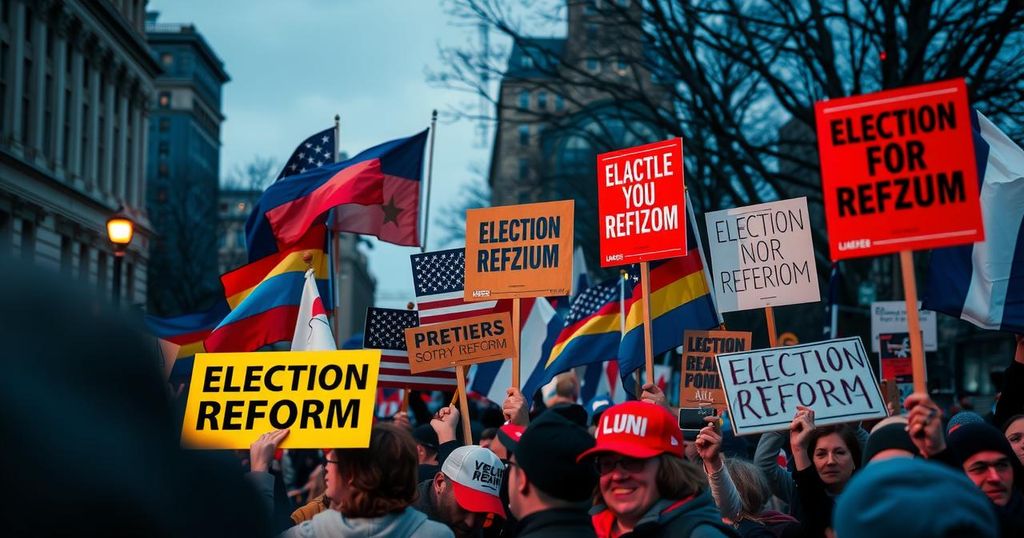Voters Reject Election Reform Initiatives Despite Significant Advocacy Efforts

In a notable electoral outcome, voters across the U.S. rejected various election reforms, including ranked choice voting and open primaries, despite over $100 million invested in advocacy. The defeats occurred in states such as Arizona and Nevada, emphasizing a preference for traditional voting methods. This has led advocates to reconsider their strategies in light of inadequate public support for these initiatives.
In the recent elections across the United States, a significant push for election reform initiatives was met with overwhelming resistance from voters, despite substantial financial backing exceeding $100 million. Activists had high hopes for the adoption of measures such as ranked choice voting and open primaries, which would allow for greater candidate choice and bypass traditional partisan lines. Instead, proposals in states like Arizona, Colorado, and Nevada were rejected resoundingly, indicating a preference for established voting methods.
The election reform movement’s setbacks raise questions about its readiness for broader acceptance among the electorate. John Opdycke, president of Open Primaries, remarked on the unexpected nature of the defeats, stating, “It turns out, in retrospect, we weren’t yet ready for prime time.” A range of factors, including skepticism about new voting formats and a sense of comfort with conventional systems, contributed to the lack of voter approval.
Although proponents of ranked choice voting celebrated some isolated successes in local elections, such as in Portland and San Francisco, overall trends indicated a decline in enthusiasm for these reforms. The notion that ranked choice voting might alleviate issues such as vote splitting did not sway the majority, as many voters found the concept confusing. Larry Jacobs, a political science professor, suggested that awareness and support have diminished: “I think the tide for ranked choice voting is turning away from it.”
Following these results, organizations like Unite America are reconsidering their strategies and emphasize the need for foundational grassroots support. The electoral landscape suggests a need for a more thoughtful approach to reform efforts, balancing ambitious proposals with the necessity of public understanding and engagement. Activists are now evaluating how to effectively reshape their campaigns to resonate with a broader range of voters in future initiatives.
The article discusses the recent elections where various ballot initiatives aimed at election reform were overwhelmingly rejected by voters across multiple states in the U.S. Activists had invested significant resources to promote alternative voting methods, such as ranked choice voting and open primaries, hoping to replace traditional voting practices. The context highlights both the financial commitment to these reforms and the disconnect with voter sentiment, which favored maintaining existing voting protocols. This reflects broader trends in how voters perceive electoral changes amid growing political dissatisfaction.
The recent election outcomes regarding proposed electoral reforms illustrate a critical mismatch between the aspirations of activists for change and the comfort of voters with traditional voting methods. Despite considerable advocacy and funding, the rejection of initiatives such as ranked choice voting and open primaries in various states signals a need for a more foundational approach in cultivating public understanding and acceptance of these concepts. As organizations strategize for future efforts, the lessons from these elections may shape how reform proposals are presented to voters moving forward.
Original Source: mynorthwest.com







